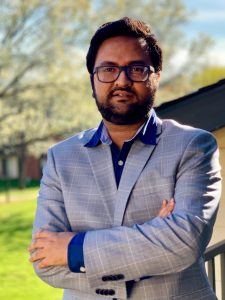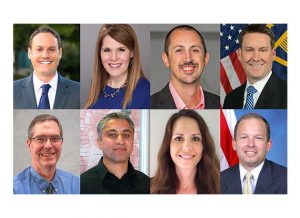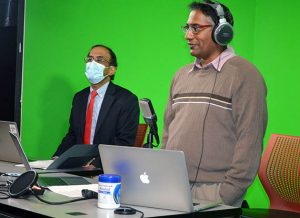
July 9, 2024
Hackers beware: Research shows AI can assist with cybersecurity
A Mizzou researcher and collaborators found that leading chatbots can pass certified ethical hacking exams.

Oct. 10, 2023
Calyam leading efforts to establish zero trust cybersecurity approach for battlefield communications
A Mizzou Engineer is leading efforts to establish a new cybersecurity approach to better protect classified information and communications on the battlefield. Prasad Calyam — Greg L. Gilliom Professor of Cyber Security and director of the Mizzou Center for Cyber Education, Research and Infrastructure — is leading the project as Principal Investigator of a National Security Agency grant.

Aug. 14, 2023
Mizzou Engineering camps allow students to explore STEM opportunities
Mizzou Engineering hosted six summer camps designed to showcase opportunities in STEM.

Oct. 12, 2022
Calyam receives NSF grant to explore future of cloud/edge computing
Prasad Calyam is exploring how cloud and edge systems can work together, ensuring that information can be intelligently and securely transferred from one trustworthy platform to another

Nov. 19, 2021
Mizzou Engineering hosts 14th CANSec Workshop
Cybersecurity experts from across the region convened at the 14th Central Area Networking and Security Workshop (CANSec) hosted by Mizzou Engineering.

July 7, 2021
Missouri teachers to learn cyber skills at GenCyber camp
Elementary, middle and high school teachers from across the state will spend next week learning new ways to incorporate cybersecurity lessons into their coursework. It’s part of the GenCyber Camp offered by Dan Lin, an associate professor of electrical engineering and computer science at Mizzou Engineering.

June 15, 2021
Mizzou Engineer Offers Tips on Preventing Ransomware Attacks
By Eric Stann, MU News Bureau Prasad Calyam The recent ransomware attack on a major oil refinery in the United States, followed weeks later by another hack that affected a large meat supplier, have again brought the issue of cyberattacks to the forefront of people’s minds, followed closely by a renewed push toward building better cyber defenses to help prevent critical data from being stolen and held hostage by cybercriminals. Furthermore, these attacks have caused a ripple effect in the nation’s economy, most notably with sudden rises in gasoline and food prices, gasoline shortages and delays with shipping and logistics…

Jan. 29, 2021
Mizzou Cybersecurity Center Forms New Industrial Advisory Board
Mizzou Cybersecurity Center directors have assembled an all-star team of industry professionals to guide the future of research and education around cybersecurity strategies. The new Mizzou Cybersecurity Industrial Advisory Board (IAB) will help plan center activities, provide input into research and educational curricula and consider potential strategic partnerships between the center and their respective organizations.

Oct. 20, 2020
Mizzou Engineering Hosts Virtual AIPR Conference
Mizzou Engineering hosted the 49th annual Applied Imagery Pattern Recognition (AIPR) conference last week, proving that a virtual event can be just as robust as meeting in person.

Oct. 1, 2020
Detecting Deepfake Photos, Videos with a Computerized Brain
Imagine seeing yourself in a photo or video that was never taken, with your head possibly appearing on another person’s body. You’re likely a victim of a deepfake cyberattack — where cyber attackers expertly alter images and videos shared on a social media platform to fool people into believing what they are seeing is true. Lin As these attacks become more sophisticated in nature, stronger detection methods and quicker responses are needed to counteract the threats. This type of digital deception could lead to a wide range of issues, including the destruction of personal privacy, such as stealing someone’s likeness…
- « Previous
- 1
- 2
- 3
- Next »